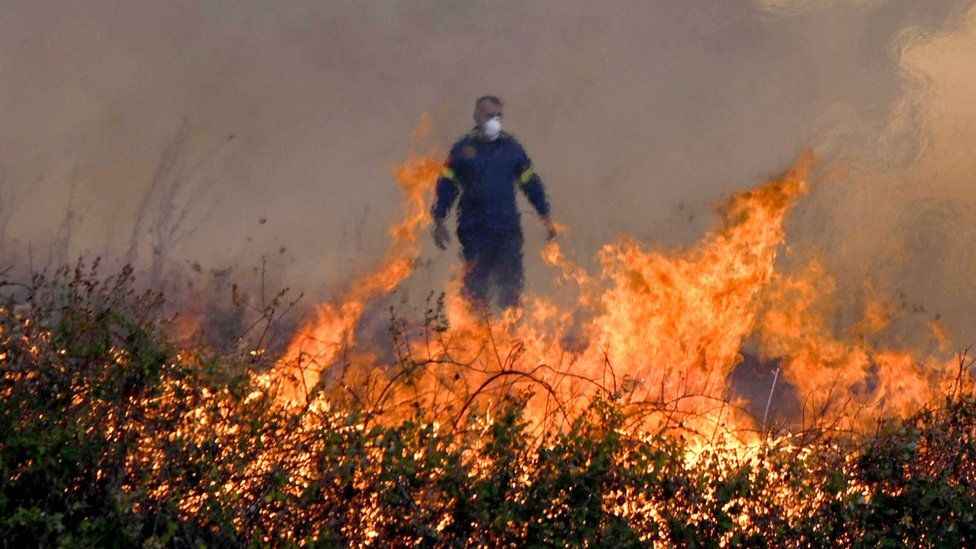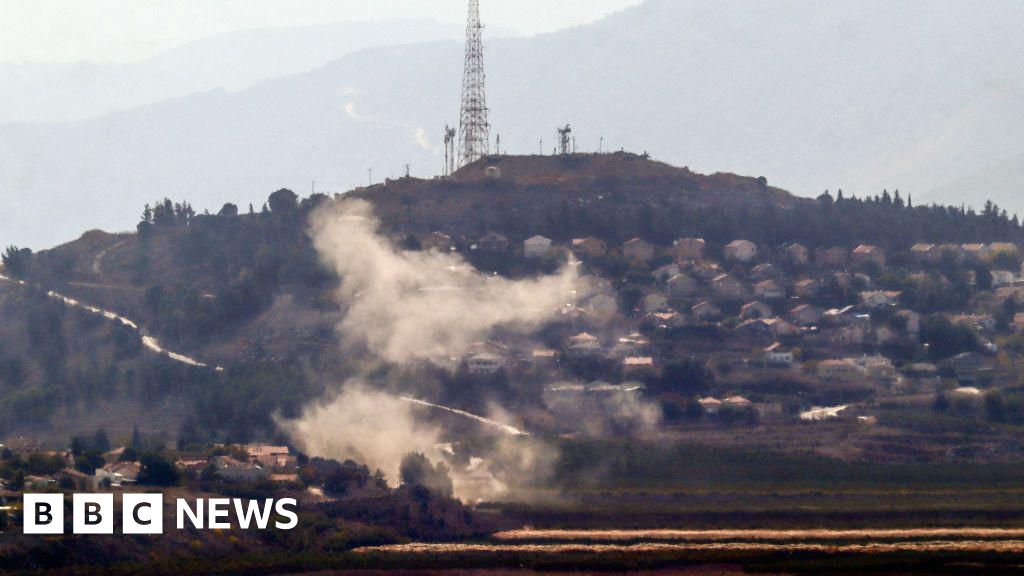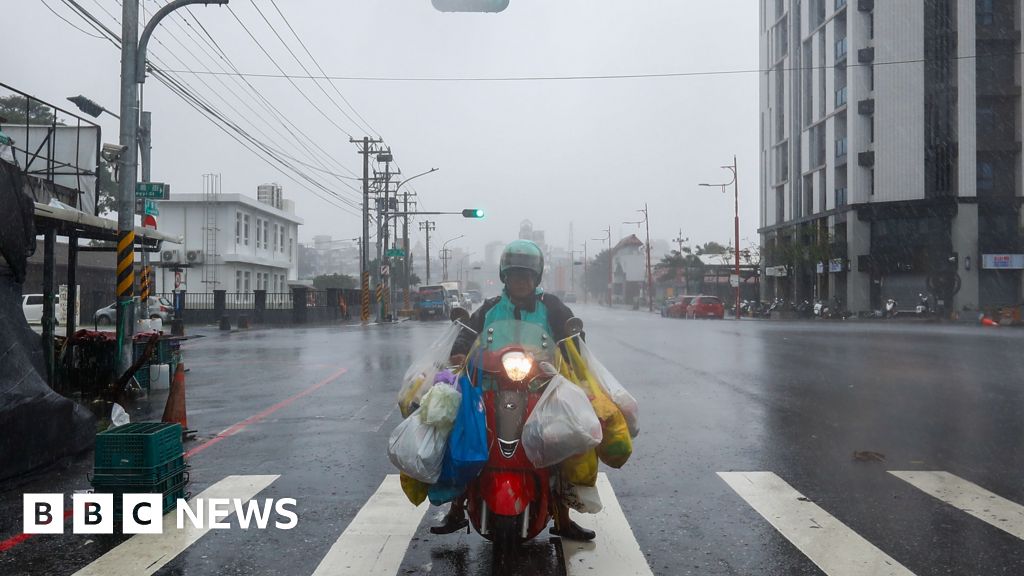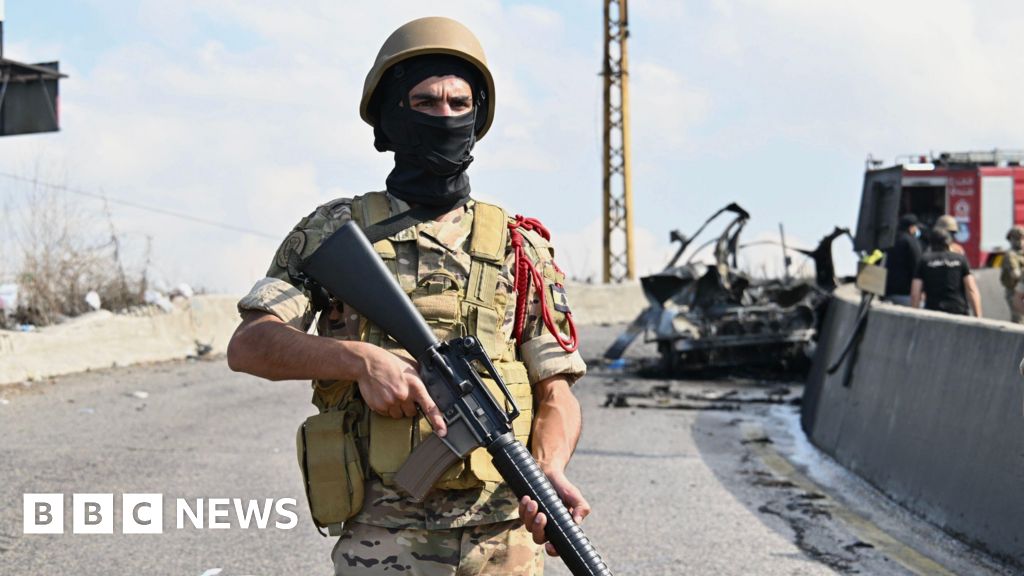ARTICLE AD BOX
 Image source, EPA-EFE/REX/Shutterstock
Image source, EPA-EFE/REX/Shutterstock
Greek authorities say high temperatures and gale-force winds could lead to even more fires
By Kathryn Armstrong
BBC News
Several parts of Greece are on high alert as extreme temperatures and high winds threaten to spark more devastating wildfires.
Extreme fire risk warnings have been issued for several regions in southern Greece, including around Athens.
The capital has seen searing temperatures over summer - this week they will hover close to 40C (104F).
Dozens of fires broke out at the weekend, prompting thousands of residents to be evacuated.
One of the worst fire fronts is near the port city of Alexandroupoli, close to the north-eastern border with Turkey.
Fires there have been burning for several days, and 13 communities near the city were evacuated "for the safety of the citizens", Greece's fire service said in a statement.
There are also fires burning in the eastern Rhodope region and the northern city of Kavala.
France, Cyprus and Romania have sent reinforcements to help Greek firefighters.
At least one person is thought to have died so far as a result of these latest fires.
According to local media, an 80-year-old man collapsed while trying to save his sheep from the flames in the central Boeotia region, north of Athens.
Summer wildfires are common in Greece but scientists have linked the increasing frequency and intensity of extreme weather events, including heatwaves, to climate change.
Just last month, thousands of people were forced to flee fires on the Greek island of Rhodes after wildfires broke out there and in other parts of the country.
"Greece already had by far its worst July since 2008 in terms of wildfires," the EU's Commissioner for Crisis Management, Janez Lenarčič, said on Monday.
"The burnt area is bigger and the fires are more intense and more violent, burning more area than before."
A spokesperson for the Greek fire service, Ioannis Artophios, said the country is faced with "extreme phenomena" and that everyone needed to "adapt to this difficult situation."
Greece is one of several European countries currently at extreme risk of wildfires, according to the EU's climate monitoring service, Copernicus.
Fire crews have been battling a blaze on the Spanish island of Tenerife for almost a week, but the authorities there believe the worst is now behind them.
The fire has burned through thousands of acres of land and forced the evacuation of more than 12,000 people, according to the regional government.
Parts of southern France, meanwhile, could experience record-breaking heat in the coming days. Temperatures of more than 40C are expected in places including the Rhone valley.

 1 year ago
14
1 year ago
14








 English (US)
English (US)